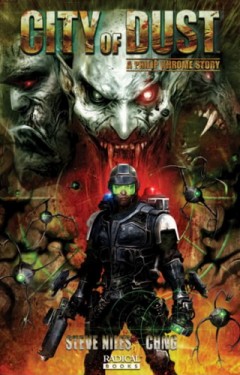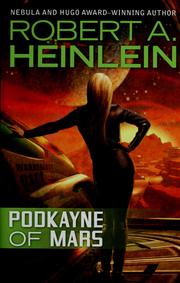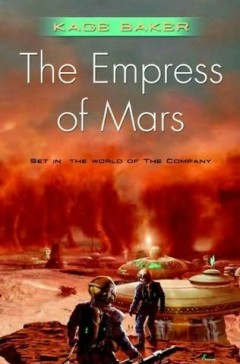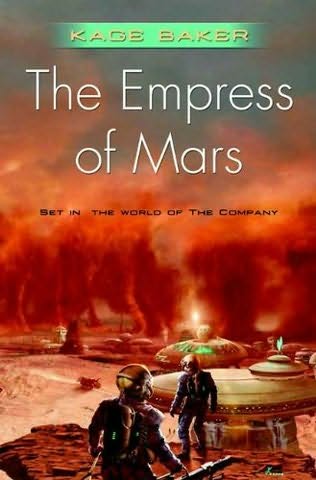- The tv series Community recently had a funny episode devoted to Advanced Dungeons & Dragons. I started roleplaying when I was 12 with AD&D, roleplayed with a variety of games well into college, and have fond memories of it. I haven’t seen any other episodes in the series, so I don’t know if they’re worth watching. io9 has a good review of the D&D episode. Watch it for a limited time on Hulu.com.
- As if anti-gay marriage bigots and statists weren’t bad enough, now we can add anti-AI marriage luddites to the mix. Yes, folks, that slippery slope that gay marriage will surely start us down will lead us one day to marriage between humans and artificial intelligences! Um, yeah…so what? That alone won’t destroy traditional marriage any more than gay marriage will. I guess this guy hasn’t heard that Japanese nerds are already marrying their favorite anime game characters. No, I’m serious.
But anyway: The libertarian ideal, however one feels personally about gay and AI marriage, is for the state to get out of marriage entirely. Let people decide what to call their relationships and social evolution sort it out. Down with government classificationism!
Here’s io9 on the story. And here’s the biggotted luddite’s speech:
[continue reading…]
science fiction
NEWS ROUNDUP | D&D on Community, Anti-AI-Marriage Luddites, Atlas Shrugged Trailer
in Fantasy Fiction, Film, Games, News, Science Fiction, TV
Help Promote Prometheus Unbound by Sharing this Post
THE LIBERTARIAN TRADITION PODCAST | Libertarian Science Fiction
in Featured Posts, Prose, Reviews, Science Fiction, The Libertarian Tradition Podcast
PODCAST: Play in New Window | Download (Duration: 20:23 — 7.1MB) | Embed
In a new addition to the Mises Institute’s online media library today, part of The Libertarian Tradition podcast series, Jeff Riggenbach discusses libertarian science fiction.
Riggenbach discusses the role of science fiction in keeping individualism alive, the phenomenon of all the best known libertarian novels being science fiction novels, Eric S. Raymond’s “A Political History of SF” in which Raymond argues that science fiction has a natural affinity with libertarianism, and the importance of dramatizing our values (pdf).
Reviewed in some detail are A.E. van Vogt’s novel The Weapon Shops of Isher and Eric Frank Russell’s novel The Great Explosion.
Help Promote Prometheus Unbound by Sharing this Post

Brilliant art coupled with a clever story make Steve Niles’s graphic novel City of Dust an instant sci-fi horror classic. Niles, who also wrote graphic novel 30 Days of Night and the first draft of its film adaptation, loops good cops, bad laws, prostitutes, and mechanical nightmares into a deeper story about imagination and thought crimes. The story takes place within a metropolis setting where your socio-economic status, as well as your physical safety, is dependent on how many stories you are above the ground. Cops roam the lower parts of this vertical city looking for looking for anything resembling imagination-paraphernalia, classified as anything that might evoke imaginative thinking or thought crimes. All media is banned in the year 2166: books, music, movies, religious art, even religion itself.
Khrome, leading character and cop convinced something is wrong with the system, was persuaded as a child to have his father arrested and imprisoned for life simply for reading him children’s books. Years later Khrome does the arresting and the trials are conducted instantly via e-mail. The verdict for indulging in such imagination-paraphernalia…instant death. Later on in the story, Khrome becomes involved in a crime scene investigation where a children’s book is found on the scene of a mutilated, half-eaten corpse. Told to keep his distance until the fed’s arrival, Khrome can’t help but open this rectangular object and indulge. His actions are cause for alarm and Khrome finds himself involved in much more than police work.
Overall, City of Dust is your typical dark, sinister sci-fi horror graphic novel (though nothing close to the level of disturbia in Garth Ennis’ Crossed). It’s well-written and well-drawn with lots of political undertones dealing with authoritarianism and censorship, though the story feels slightly rushed at the end. The author’s well-structured plot seems to fall apart in a last minute sprint to finish the project within the remaining 10 pages of the book.
Help Promote Prometheus Unbound by Sharing this Post
- In July, Amazon announced that Kindle book sales had surpassed hardback book sales. Analysts pooh-poohed this milestone as paperback sales are far greater than hardback sales. But now Kindle book sales have overtaken paperback sales as well. Amazon is now selling more digital or ebooks in its bookstore now than physical print books. We’ve reached a turning point in the way people read books.
There is still a ways to go, however, for ereader owners are still buying print books and ereader ownership is still not mainstream. While the adoption of ereaders is spreading, even at an accelerating pace, a recent survey of book shoppers shows that only 21% own one. I don’t own one yet, though I hope to buy an Android tablet in the next year or so.
I’m not sure print books will ever go the way of the dodo. Print books will increasingly have collector value. Some people may still prefer reading them, if only out of nostalgia for a bygone era. There are ways to add value to a print book as well: high-quality production, handwritten signatures, personal notes, and so on.
Help Promote Prometheus Unbound by Sharing this Post

 When Robert Heinlein told a tale, it was with a compelling and engrossing voice. He created personalities with interest and depth and fashioned dramatic interactions to keep us involved. However much or little happens to his characters, the experience for us readers is enhanced because we become invested in the people who inhabit his stories. Even a book like Podkayne of Mars, which one might quibble is a touch underplotted, is a satisfying read because of the investment in the people.
When Robert Heinlein told a tale, it was with a compelling and engrossing voice. He created personalities with interest and depth and fashioned dramatic interactions to keep us involved. However much or little happens to his characters, the experience for us readers is enhanced because we become invested in the people who inhabit his stories. Even a book like Podkayne of Mars, which one might quibble is a touch underplotted, is a satisfying read because of the investment in the people.
Podkayne Fries, a girl on the verge of womanhood with dreams of becoming an interplanetary ship captain, is the principle narrator and protagonist of the story. She and her younger brother Clark get an opportunity to accompany their uncle on a voyage to Venus and Earth. Her uncle, however, is an ambassador and there are those who would interfere with his mission, disdaining no despicable act in their attempts. That is about all there is to the story structure. There are a few plot points thrown in – such as the mysterious object Clark smuggles on board, or the solar storm that catches them between planets – and the ending is harrowing, but it becomes clear early on that the novel’s strongest points lie elsewhere.
Help Promote Prometheus Unbound by Sharing this Post

 The Empress of Mars
The Empress of Mars
By Kage Baker
Trade paperback, 304 pages
Tor (2009), $10.87
The Empress of Mars was written by the late Kage Baker (June 10, 1952 — January 31, 2010; 1st name pronounced like ‘cage’). It started out as a novella (Asimov’s Science Fiction Magazine July 2003), which won the 2004 Theodore Sturgeon Award and was nominated for a Hugo Award and a Nebula Award, but was later expanded into the full-length novel published in 2009 that I review here.
The Empress of Mars is not Martian royalty. This is not Barsoom, the Mars of Edgar Rice Burroughs. You won’t find a John Carter-type hero fighting native Martians and rescuing princesses within these pages, though Baker does pay homage to Burroughs’ Mars tales. Tars Tarkas makes an appearance as the Martian Santa Claus, for example.
No, The Empress of Mars is a restaurant and bar owned by one Mary Griffith, an early settler of Mars and former biological scientist. A tough, motherly figure, Mary Griffith embodies the rugged individualism and pioneer spirit that pervades Baker’s The Empress of Mars. Baker’s tale is more scientifically literate than Burroughs’, and qualifies (mostly at least, see below) as hard science fiction, leavened with superior writing and humor. It is set some unspecified time after the year 2186 — marking a past event, the year the Kutuzov expedition discovered Olympus Mons is not an extinct shield volcano, it was the only date I recall seeing in the novel.
The story revolves around Mary, her three daughters, and a host of other quirky characters, some of whom she takes under her wing, others she befriends or does business with, as they deal with at first neglect by and then interference from the bureaucrats of the British Arean Company (BAC).
Help Promote Prometheus Unbound by Sharing this Post
Innovative Funding Experiment(s) at Clarkesworld Magazine
in Fantasy Fiction, IP, Magazines, News, Science Fiction, Short Fiction
Clarkesworld Magazine is an online science fiction and fantasy magazine that features at least two original short stories per month from new and established authors as well as artwork, podcasts, and non-fiction articles. Founded in October 2006 by Neil Clarke, its online content is totally free. The magazine has been experimenting with innovative methods of funding. No paywalls or DRM or desperate IP aggression here.
While its content is freely available online, Clarkesworld sells print versions of its fiction. An annual anthology series, Realms, is available in trade paperback, hardcover, and ebook formats. Additionally, several months after online publication, each month’s fiction is collected in chapbook form; the value-add here is that the chapbooks are limited print run (100), numbered editions that are signed by the authors. If you happen to have a tablet pc or ereader, you can also purchase ebook editions of each monthly online issue in epub or mobi/kindle format.
Help Promote Prometheus Unbound by Sharing this Post








